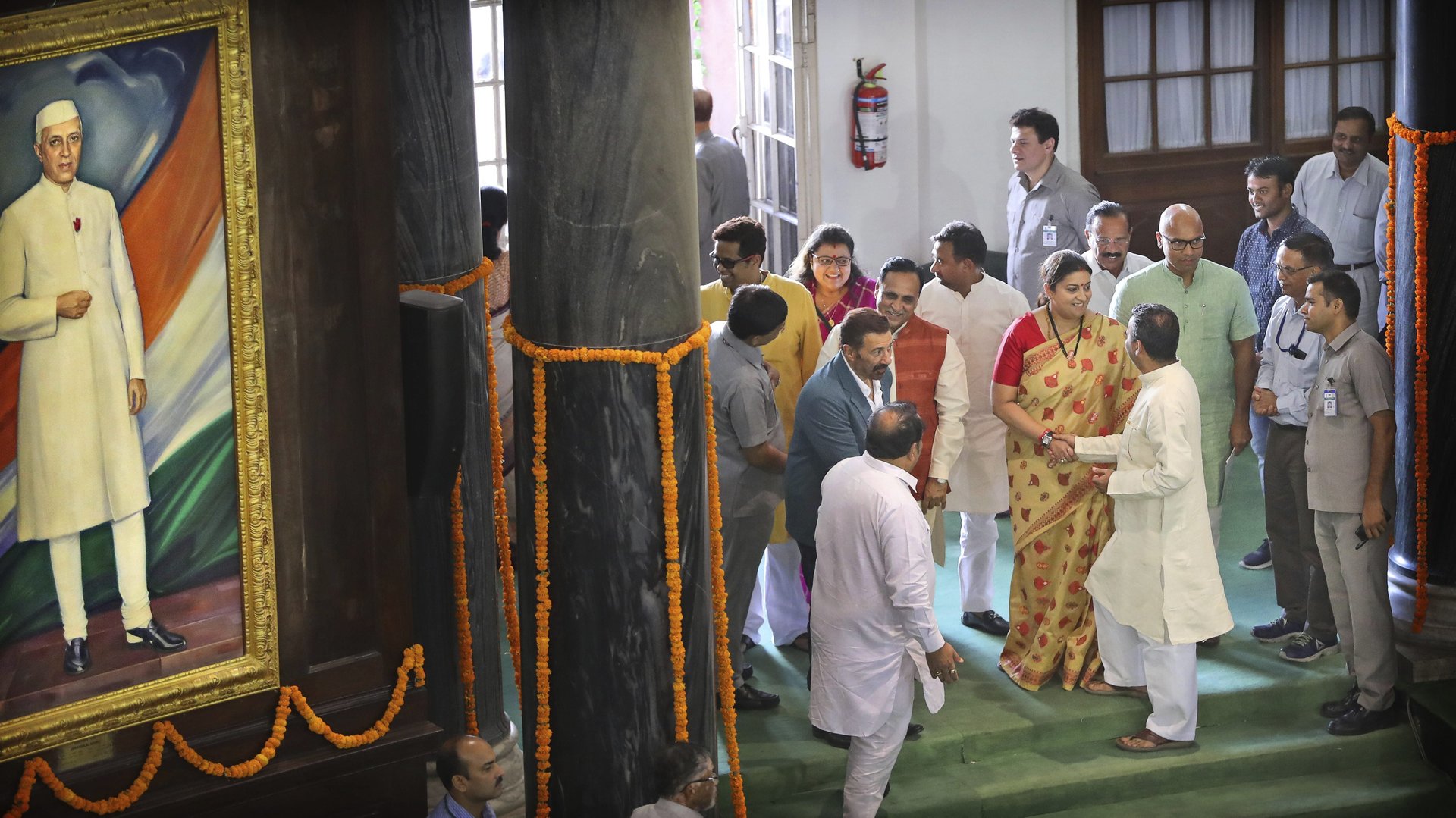Even at a trifling 14%, India’s new parliament will have the most women members ever
India’s parliament is still a considerable distance from a reasonable measure of gender equality, but undoubtedly, it has made strides.


India’s parliament is still a considerable distance from a reasonable measure of gender equality, but undoubtedly, it has made strides.
At 14%, or 77 of all 542 seats, the 17th Lok Sabha (lower house of parliament) will have the highest representation of women ever, according to Lok Dhaba, a repository of election results based on data from the election commission of India (ECI).
The share of sitting women members of parliament (MPs) is up from 5% in the first Lok Sabha way back in 1952.
Priyanka Chaturvedi, a Congress spokesperson who joined the ruling Bharatiya Janata Party’s ally Shiv Sena only a few weeks before the elections, observed that women had a better winning streak than men during the recent polls.
In 2019, up to 715 women candidates contested the Lok Sabha elections versus 7,334 males—10% of women won as opposed to 6% of the men.
Some of the larger states saw a higher number of women winning, Quartz’s analysis of Lok Dhaba data shows. India’s most populous state with 80 seats, Uttar Pradesh elected the most number of women (11).
The profiles of 700-plus female candidates contesting the 2019 general elections, according to an analysis by the Association for Democratic Reforms, are as follows:
- 396 women candidates attained graduate-level or more of education. That’s over half the total pool.
- 531 aged between 25 and 50 years. A quarter of them were aged between 51 and 80 years. The youngest was 25-year-old Chandrani Murmu of Biju Janata Dal (BJP) who won from Keonjhar, Odisha.
- 110 had criminal cases registered against them. Up to 78 faced serious charges.
- 255 crorepati women candidates. The average assets of women candidates stood at Rs5.63 crore ($810,945). Hema Malini, a two-time winner from Mathura, Uttar Pradesh, boasted of the highest value of assets with over Rs250 crore.
Smriti Irani, who beat Congress president Rahul Gandhi on his traditional home turf, Amethi, is being heralded as the biggest winner of them all. Pragya Thakur, the Malegaon blast-accused who called Mahatma Gandhi’s assassin Nathuram Godse a patriot, is perhaps the most controversial among them.